CITIZENSHIP
AND THOSE WHO LEAVE
STUDIES OF WORLD MIGRATIONS
Donna R. Gabaccia and Leslie Page Moch, editors
A list of books in the series
appears at the end of the book.
CITIZENSHIP
AND THOSE WHO LEAVE
THE POLITICS OF EMIGRATION
AND EXPATRIATION
EDITED BY
NANCY L. GREEN
AND FRANOIS WEIL
UNIVERSITY OF ILLINOIS PRESS
Urbana And Chicago
2007 by the Board of Trustees
of the University of Illinois
All rights reserved
Manufactured in the United States
of America
1 2 3 4 5 c P 5 4 3 2 1

This book is printed on acid-free paper.
Library of Congress Cataloging-in-Publication Data
Citizenship and those who leave : the politics
of emigration and expatriation / edited by
Nancy L. Green and Franois Weil.
p. cm. (Studies of world migrations)
Includes bibliographical references
and index.
ISBN -13: 978-0-252-03161-8 (cloth : alk. paper)
ISBN -10: 0-252-03161-x (cloth : alk. paper)
ISBN -13: 978-0-252-07429-5 (pbk. : alk. paper)
ISBN -10: 0-252-07429-7 (pbk. : alk. paper)
1. Emigration and immigrationHistory.
2. Emigration and immigration
Government policy.
I. Green, Nancy L. II. Weil, Franois.
III. Series.
JV 6021. C 57 2007
325.2dc22 2006017846
CONTENTS
PREFACE
Donna R. Gabaccia
Leslie Page Moch
Citizenship and Those Who Leave is the second volume in the Studies in World Migrations series, following Leo Lucassens Immigrant Threat. This volume was chosen for the series because it casts an eye to emigration and expatriation worldwidefrom the Americas and Europe to India, China, and Israel. Like the emerging field of migration studies, the perspective is interdisciplinary; although most contributors are historians who have read widely in the social sciences, other contributors bring the expertise of sociology and political science to their contributions.
This volume, like the series, appears at a time of transition from methodological nationalist paradigms (such as case studies of immigration to the United States) to global and border-crossing scales of analysis. Scholars are producing more comparative studies, adopting global or world perspectives, and experimenting with transnational studies. A present danger, then, is losing sight of the still-significant power of nation-states to guard their borders. This power may be peaking currently; certain national laws governing immigration and emigration continue to frame a concrete reality for people on the move. This volume keeps the influence of the national state firmly in view even as it reverses our paradigms from immigration to emigration and offers comparisons that show how states in most world regions have sought to regulate their mobile populations.
The key questions embedded in these chapters include: How successful has the state been in controlling departures? What is the administrative structure that shapes emigration policy, and what are its concerns? How do the politics and the bureaucracies of nations conceive of and attempt to control the costs of emigration? How are potential emigrants viewed by their home state? Do nation-states actually seek to learn from policies implemented elsewhere as they face the mobile millions they call their subjects or citizens? Answers to complex questions such as these are never simple or straightforward. Still, it is our hope that by asking such questions, we will encourage our readers to develop a more balanced approach to the study of international migration and that future scholarship will devote as much analytical attention to issues of emigration as scholars over the past half-century have devoted to related issues of immigration.
ACKNOWLEDGMENTS
Most of the chapters in this volume originated at a conference entitled Citoyennet et migration, held at the cole des Hautes Etudes en Sciences Sociales on December 7 and 8, 2001. The meeting brought together an interdisciplinary group of migration scholars to look at the other side of the migration process from a comparative perspective. We would like to thank all of the participants, including the discussants, Marie-Claude Blanc-Chalard, Catherine Collomp, Ambassador Richard Kauzlarich, and Patrick Weil. Rebecca Fite gave invaluable assistance in helping the conference take place.
We are also grateful to the following French institutions for their support throughout this project: the cole des Hautes Etudes en Sciences Sociales, the Centre de Recherches Historiques, the Centre dtudes nord-amricaines, the Mission Recherche (MiRe) of the Ministre de lEmploi et de la Solidarit, the Ministre des Affaires trangres, the Commissariat gnral au Plan, and the Ministre de la Recherche.
Our special thanks go to Donna Gabaccia and Leslie Page Moch, fellow migration scholars, for accepting this book into their series.
CITIZENSHIP
AND THOSE WHO LEAVE
INTRODUCTION
Nancy L. Green and Franois Weil
Exit, like entry, has helped define citizenship over the last two centuries, yet little attention has been given to what could be called the politics of emigration. Most of the migration literature of the last few decades, as seen from the major countries of arrival, has been resolutely a literature of immigration. As immigration studies took off during the ethnic renaissance of the 1970s and 1980s, and as immigration remains front-page news, it is not surprising that most migration history is written from where we are: the countries of immigration, past and present.
Indeed, immigration has come to be seen as a litmus test for how nations define themselves. The expanding field of citizenship studies has raised fundamental questions about hospitality and sovereignty from the perspective of the state, focusing on admissions policies, the integration of foreigners, the acquisition (or not) of rights and eventually political citizenship, and the definition of foreignness as perceived by host countries. All of these issues have to do with perceptions of the Other, and with defining the nation itself.
We propose here to reverse this perspective in order to examine how nations also have defined themselves by their attitudes toward those who leave. Surprisingly little attention has been given to the history of policies and attitudes of the state with regard to departure. How have countries impeded or facilitated leave-taking? How have they perceived and regulated those who leave? What relations do they seek to maintain with their citizens abroad, and why? Citizenship is conceptualized not just through entry but through exit as well.
The emigration perspective is important for two reasons. First, emigration is intimately related to immigration. This has been recognized for the migrants, with repeated calls for better integrating the stories of their past with stories of their present.in order to re-examine the ways in which countries have perceived those who left.
A study of the politics of emigration could range in time from colonial policies of the nineteenth century to taxation regimes for business expatriates in the late twentieth century. Emigration can be a strategy encouraged in the name of imperialism, or it can be perceived as a loss of labor or a brain drain. At one extreme, countries have expelled their citizens for political or religious reasons; local potentates have sold their subjects into slavery. At the other, totalitarian regimes have prohibited their citizens from leaving, creating everything from administrative barriers to physical walls.


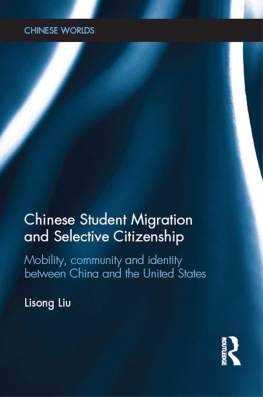

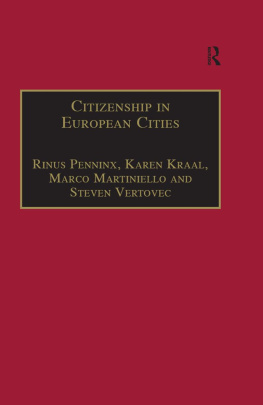
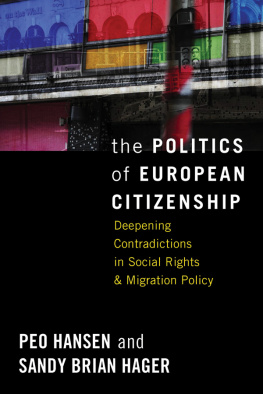
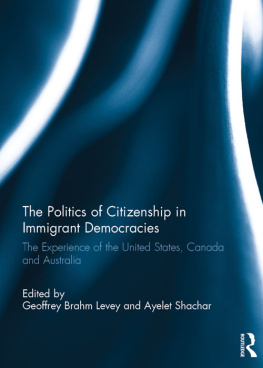
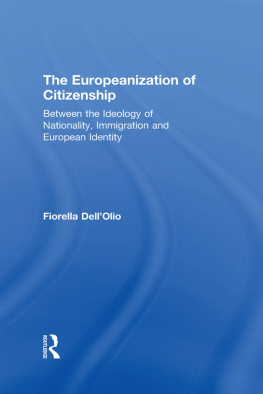
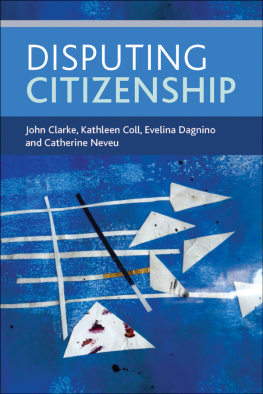
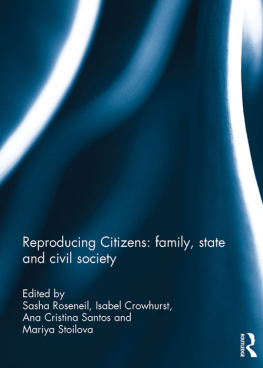

 This book is printed on acid-free paper.
This book is printed on acid-free paper.